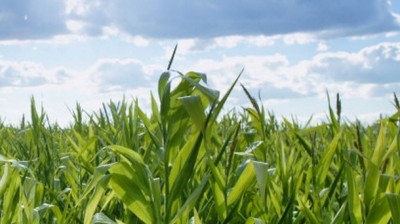Enzymes’ diverse functions can help manufacturers improve sustainability across categories
This content item was originally published on www.foodnavigator-usa.com, a William Reed online publication.
At IFT’s annual summit in Chicago this month, Søren Lund, head of strategic growth for Novozymes North America, estimated that it would take roughly 890 million tons of beef to provide today’s 7 billion people with their required protein and that figure would shoot up to 1.3 billion tons by 2050 when the population reaches a projected 10 billion.
“You can easily calculate there is not enough [resources] the way we do it right now,” he told FoodNavigator-USA.
“So,” he added, “you have to figure out other ways that we can use less of the resources and still get the food that we need,” and one way to do that is with enzyme technology.
For example, Lund said, “in the baking industry, the bread that we make today uses enzymes that made it possible for the bread to be soft for longer time and that means we are not throwing out so much bread as we used to. We are basically throwing out 10% less bread than we used do and that means we produce 10% less bread, that means we use 10% less wheat from the agriculture and produce 10% less wheat, so we save on the water that is sued for making the wheat, we save on the land where the wheat is grown, we save on the chemicals that are used for fertilizers and pesticides and other things. So, the savings come.”
He acknowledged that 10% may not seem like much, “but it is one of the steps towards it, and I am sure there is more innovation that will come out in the future that will help us save even more on the resources.”
Novozymes’ enzymes can help not only reduce waste within baking, but also can help improve yield and reduce waste within beverage production, such as with beer. Lund explained that a unique enzyme solution can produce high quality beer directly from unmalted barley – saving about 10% of barley that would be used in the malting process.
As with the bread, using less barley has a domino effect on the use of limited resources such as land and water and reduces the need for fertilizers and other chemicals that could negatively impact finite resources, he explained.
In addition to bakery and beverage, Novozymes’ enzymes can help with other food applications, including protein modification, acrylamide modification, grain processing and dairy.
While the company’s portfolio illustrates the vast potential of enzymes, there is still plenty of room for innovation in the field, Lund noted, explaining: “Enzyme technology relates to anything that is in nature because … all things in nature are created by enzymatic processes and everything in nature disappears with enzymatic processes. So, it is only a matter of finding the enzymes” necessary to achieve a goal.


















